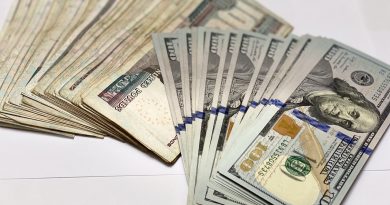VAT is Happening to Our Economy?
By Maureen Guirguis
@MaureenGuirguis
![Will the VAT help the government balance the budget? [Suhayla Al-Sheikh]](http://www.auccaravan.com/wp-content/uploads/2015/12/IMG_5059-e1450886220942.jpg)
The Egyptian government implemented the new Value Added Tax (VAT) law in the first week of September to increase revenues, but there is a concern that this could lead to a spike in real estate, construction and prices of other sectors.
AUC’s Economics Association (EA) hosted a discussion on the VAT on October 12 with guest speaker Karim Imam, of PricewaterhouseCoopers (PwC).
Imam said that the law’s essential objective is to increase government revenues by making everything taxable.
“Egypt has a sales tax. Although it is similar to the VAT, it is not a fully- fledged tax system,” said Imam.
This means that sales taxes were only imposed on goods and tangible commodities, whereas the VAT can be applied to both goods and services.
The VAT can be defined as the extra tax – some may refer to it as a retail sales, or consumption tax – added at each stage of the production of a commodity to account for the increase in its value once it is purchased by the consumer.
For instance, a producer charges the manufacturer a certain cost – say EGP 1 – for the raw material of a particular product.
The manufacturer then adds a value tax to this product – 13 percent – and sells it at a higher price (EGP 1.13) to a distributor.
The retailer might then improve the commodity through packaging and would then sell it at an even higher price (say EGP 1.30 an then add another 13 percent VAT) to the consumers.
This means that customers are the ones bearing the highest price as they purchase the final product or service at EGP 1.47.
By introducing the VAT at every stage of production, the government is now able to track the value added to the product and the producer/manufacturer must now pay the additional tax to the government.
The VAT is not supposed to harm producers, Imam stressed.
Professor of Economics and Director of Graduate Studies Adel Beshai believes the VAT to be too a complex tax system to administer and should be applied to manufacturing countries, and not Egypt.
“When the VAT was introduced in England 30 to 40 years ago, they made sure to educate people about it before introducing it,” said Beshai.
VAT to Reduce Deficit
According to the Ministry of Finance, until the end of last year, Egypt was suffering from a EGP 138.5 billion deficit; the government spent EGP 289.4 billion and received only EGP 160.1 billion from taxes and grants.
Tax revenues represent EGP 112.7 billion. Imam suggests that the government should increase taxes in order to reduce the deficit.
As for the income tax, this amounts to 13.4 percent of gross domestic product (GDP).
Imam said that this rate is too low and suggested a healthy rate to range between 18 and 20 percent of GDP.
This falls in line with government plans to increase the income tax rate by one percent every year until 2020, eventually reaching 18.4 percent of GDP.
Exemptions to the VAT
In hopes of lessening the financial burdens some lower- income families may incur as a result of the VAT, the government has exempted 57 groups of staple goods that are heavily consumed.
Imam says that the current VAT rate, which some may consider to be high, was set in order to compensate for the lost VAT on the exempted goods.
Likewise, an excise tax, similar to the sales tax, is being imposed along with the VAT.
Imam provided an example of how a 1600cc car does not only have a 13 percent VAT tax, but also has a one percent excise tax, that can be either temporary or permanent.
“Having two types of taxes at the same time will not blend. Businesses need to register, educate the people, reflect this on prices…and that’s not yet there because the implementation of the law is not yet clear,” he stressed.
But Beshai said the law will not be fairly implemented on everyone and he predicts that within a year the revenue the government will collect from the VAT will be minimal.
“We are a country with a very big disease, it’s called exceptions,” Beshai said.



